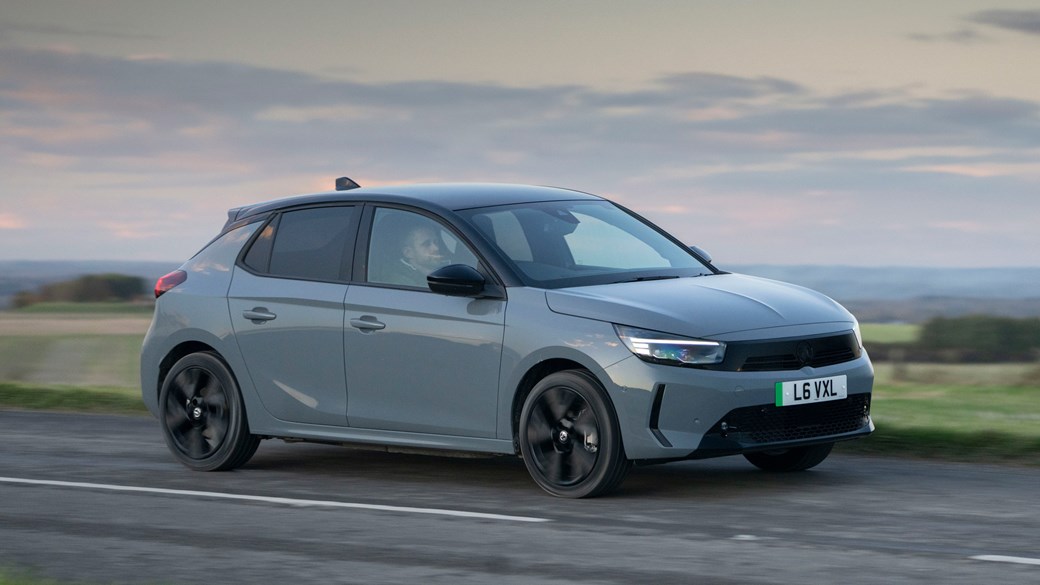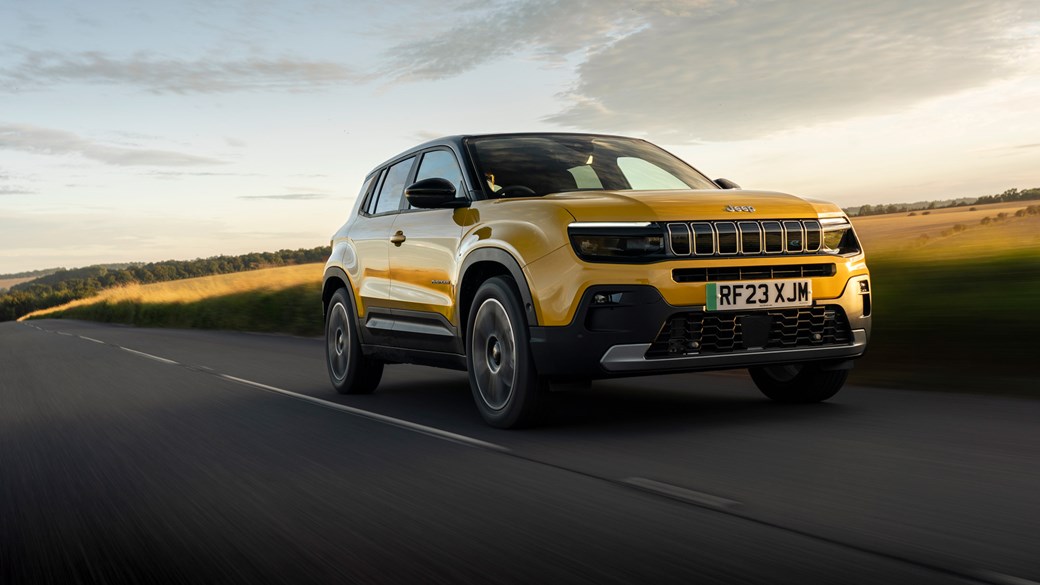Vauxhall Corsa Electric
Best small electric car for keeping things conventional

Pros: Like an e-208 with a sensible dashboard, Long Range model available, popular
Cons: Dull, depreciates like an elephant falling off a cliff
The Peugeot e-208 is all very well, with its fancy French exterior design and premium interior. But not everyone gets along with its i-Cockpit driving position, which features a tiny steering wheel and high-set instruments. If you like everything else about the Peugeot but are already a member of the anti-i-Cockpit club, we’d direct your attention to the Vauxhall Corsa Electric. Which is essentially the same technology in plainer (or duller, if we’re being harsh) dress.
The Corsa Electric has historically been hit by a steep upfront cost and terrible depreciation, the worst of both worlds. However, keen to shift more models, Vauxhall has introduced a new version called the ‘Yes Edition’ which drops the price by more than £6,000 and means it now starts from £26,895. Terrible name, but brilliant value for money. Like the e-208, there’s a 134bhp/50kWh model or a 154bhp/51kWh, with the latter offering up to 248 miles. Top-spec models are ludicrously expensive however – costing close to £35,000. For a Corsa.
Jeep Avenger
Best small electric car if you want something resembling an SUV

Pros: Fun styling, easy to drive, good around the city
Cons: Limited rear-seat space, interior feels a bit cheap
‘That’s not a small car, that’s a Jeep’, you might be thinking. But you’d be wrong, as the firm’s new electric crossover is one of the most deceivingly dinky cars on sale. At just 4.1m-long, it’s hardly any bigger than the Corsa, yet still looks like a proper Jeep with its chunky stance and proper seven-slot grille. Its compressed proportions and great visibility make it surprisingly excellent to use around the city, with the raised seating position appealing to those who love SUVs, but in a pint-sized package.
As the Avenger falls from the Stellantis tree, it gets the same 154bhp electric motor and 51kWh battery as both the Corsa Electric and e-208, allowing for fairly sedate performance and a claimed range of up to 248 miles. While the Avenger is a great small EV, it’s not the perfect package. Rear-seat space is no more generous than plenty of superminis, and the interior quality feels quite cheap in places. Jeep has also just slashed prices by £5,000 – meaning the Avenger now starts from £29,999.
Small Electric Car Buyer’s Guide and FAQs
The pros and cons of small electric cars
Small electric cars have three main benefits. They’re easy to park and manoeuvre in tight city streets, they’re amongst the cheapest electric cars on sale, and they allow free passage into emissions-controlled areas. As an added benefit, they’re much quieter than small petrol cars, which should make your commute more relaxing.
Bear in mind that you’ll need to make a couple of sacrifices with a small electric car, though. Because of their size, most only have dinky battery packs with limited maximum driving ranges. This isn’t such a problem if you’re just pottering around town, averaging around 30 miles a day, but it’ll seriously impede your mobility if you regularly need to drive long distances.
Then there’s the issue of price. Small EVs are cheap where electric cars are concerned, but they’re still more expensive than their petrol-powered counterparts. Consider the Peugeot 208. The cheapest petrol automatic model is around £4,000 cheaper than the most basic electric model, though the gap continues to narrow.
Charging is fraught with problems, too. If you can only charge your small electric car at a public charger, you could end up paying more in electricity than you would in petrol.
The only reliable method of reducing your running costs with an EV is if you have an off-street parking space on which you can install your own charging point. And that’s a financial difficulty for the average motorist living in the middle of a crowded city like London or Manchester.
Are small electric cars reliable?
While EV technology is relatively new, there are fewer moving parts involved, and electric vehicles are generally reliable. However, like all electronic devices, things can go wrong, and batteries do hold gradually less charge over time, reducing the distance it will travel. Our experience – and the data – suggests this is very much a problem for many years in the future, though, so if you’re buying new or nearly new, reliability shouldn’t be a major concern.
What is the smallest electric car?
All of the cars in our list are the same size as conventional superminis or city cars, so compact and city-friendly but not something you’d consider genuinely tiny. For that, you need to look further afield at the quadricycle sector. Historically, this includes EVs such as the G-Wiz and Renault Twizy, while the current market is served by the Citroen Ami.
Are small electric cars good for city journeys and short trips?
This is exactly what they’re good for. The torquey response of electric motors make them excellent for nipping about in city traffic, where the stop-start driving experience will help keep the battery pack topped up, too. Typically, small EVs have small batteries, so they also have shorter driving ranges, making them better suited to short trips by default.
That’s not to say you can’t do longer journeys in them, most have more than adequate performance for that. You’ll just need to plan to stop to charge more frequently than in bigger, longer-range EVs.
How we tested
As with every review on CAR, each of the models has been driven extensively by our exceptionally experienced team of leading motoring journalists and specialist writers. Take a look at how we test to find out more.



